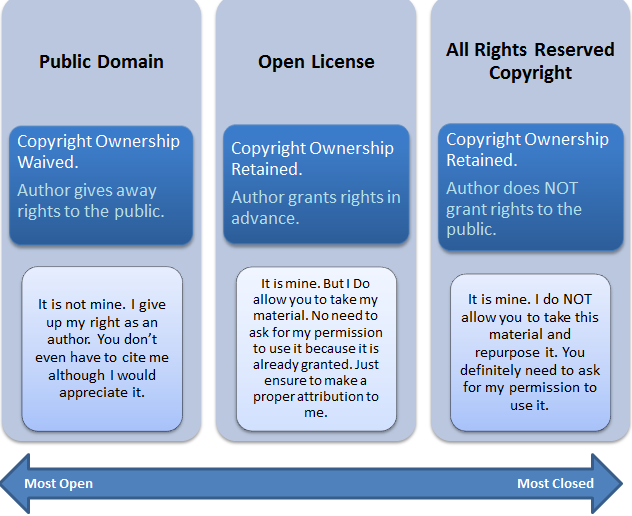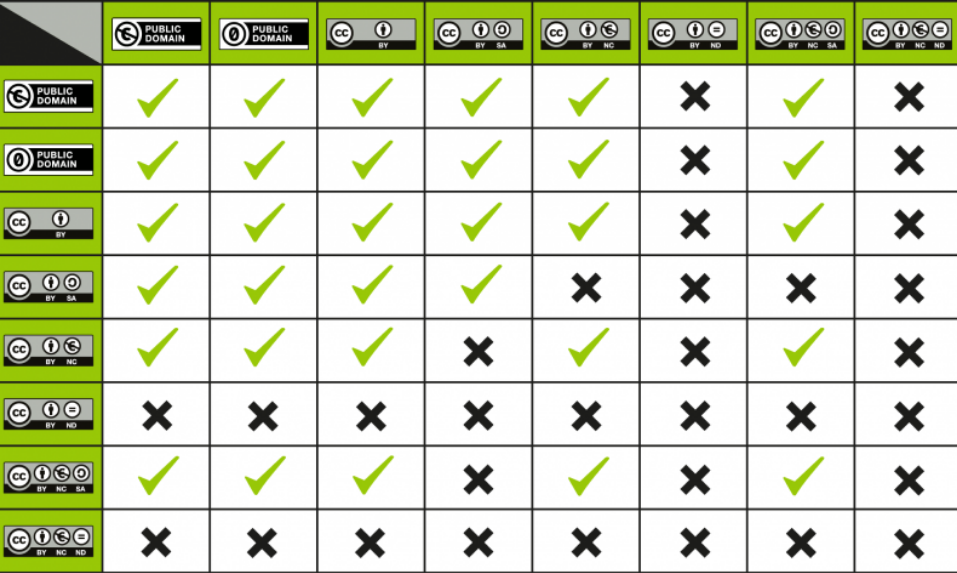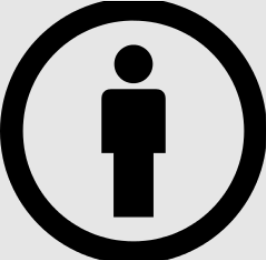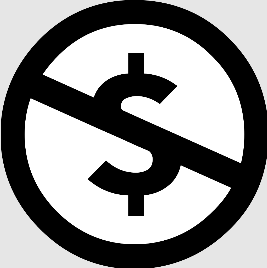
Copyright
is a form of legal protection automatically provided to the authors of “original works of authorship,” including literary, dramatic, musical, and artistic works. Copyright in the U.S. is automatically assigned to creators of work, with no registration necessary. It can be unlawful to use copyrighted works of others without their permission. Violation is called copyright infringement.
A public domain work is a creative work that is not protected by copyright, which means it’s free for you to use without permission. Works in the public domain are those for which intellectual property rights have expired, have been forfeited, or are inapplicable.
An open educational resource is either in the public domain or released with copyright permissions which allows for free use and re-purposing by others. Specifically, an open license exists as a way for the original creator to clearly inform others how their work can be used by granting permissions to share and adapt their work. A Public Domain license and the variety of open license permissions known as Creative Commons (CC) are the predominant standards for open licenses.
The four Creative Commons (CC) conditions can be combined in different ways to create six different CC licenses that are useful combinations of conditions, all including the primary condition of Attribution. Understanding the meaning of each condition can be useful when deciding which CC license to use on your own work.

View the presentation on Creative Commons, the 5R’s and OER by David Wiley
Four Creative Commons Conditions

The Attribution (BY) condition is fundamental to all CC licenses. What many creators care about most is receiving credit for their creative work. When reusing CC-licensed work, proper attribution must be given to the original creator — and to other contributors on the work, if any. The CC BY license is the most open of all the licenses and allows for the most re-use.

The Share-Alike condition adds a requirement for anyone reusing your work to also license their own creation (based on your work) under the same license. Both the CC BY-SA and CC BY-NC-SA licenses include this condition, effectively making them ‘copyleft’ or ‘viral’ licenses. While this condition effectively “locks open” the content, remixing SA content with non-SA or other-SA licensed work may not be straightforward or allowed at all.

The Non-Commercial condition allows for reuse and sharing but reserves commercial rights for the creator. The meaning of the NC condition itself and its ability to prevent commercial reuse is not always clear, but the license condition does clearly indicate that commercial reuse rights are not being granted.

The No-Derivatives condition allows sharing and reuse but only if the content is left unchanged. This presents an issue when searching for OER, as no customization or adaptation is allowed by the license. For this reason, ND content is not considered OER and should be considered for reuse only in situations where no adaptations are needed.

